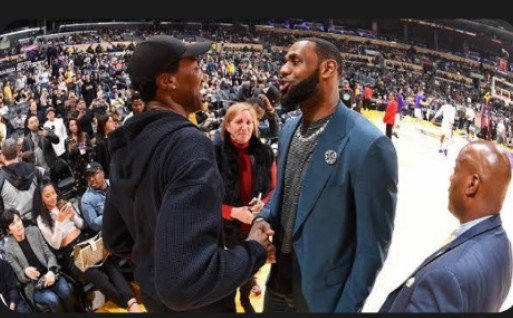The basketball world was rocked recently when Scottie Pippen, a six-time NBA champion and Michael Jordan’s long-time Chicago Bulls teammate, made provocative statements regarding Jordan’s influence on basketball and LeBron James’ legacy. In an interview, Pippen asserted that Michael Jordan “ruined basketball” while declaring LeBron James “the greatest player this game has ever seen.” The comments have sparked widespread debate among fans, analysts, and former players.
Pippen’s Critique of Jordan’s Style of Play
Pippen’s criticism of Jordan centers on the individualistic nature of his playing style. According to Pippen, Jordan’s approach to the game created an environment where basketball became overly focused on star players rather than teamwork.
*”Michael wanted everything done for him,”* Pippen remarked, reflecting on their time together during the Bulls’ dynasty years. He argued that Jordan’s mentality shifted the focus from collective effort to individual accolades, paving the way for an era where superstars dominate the narrative at the expense of team dynamics.
Pippen’s statements challenge the widely held belief that Jordan’s competitive nature and scoring prowess elevated the game. Instead, he contends that Jordan’s style set a precedent for a brand of basketball that prioritizes heroics over collaboration.
Pippen’s Praise for LeBron James
In stark contrast to his criticism of Jordan, Pippen offered effusive praise for LeBron James, whom he labeled as *“the greatest player this game has ever seen.”* Pippen emphasized LeBron’s versatility, leadership, and ability to impact every facet of the game, from scoring to playmaking and defense.
*”LeBron does everything,”* Pippen stated, highlighting James’ ability to elevate his teammates and adapt to various roles on the court. Over his 20-year career, LeBron has consistently showcased his all-around game, becoming the NBA’s all-time leading scorer while also ranking among the top in assists.
Pippen pointed out that LeBron’s selflessness and commitment to team success stand in contrast to Jordan’s more individual-focused approach. He argued that LeBron’s ability to balance his scoring with facilitating for others has redefined what it means to be a superstar in the modern NBA.
A Legacy of Tension Between Pippen and Jordan
Pippen’s comments are the latest chapter in a complicated and often contentious relationship between the two basketball legends. While they achieved unparalleled success together, their personal dynamic has been strained in recent years.
Much of this tension resurfaced following the release of *“The Last Dance,”* the ESPN documentary chronicling the Bulls’ dynasty. Pippen publicly criticized the series, claiming it glorified Jordan while downplaying the contributions of other team members, including himself.
Pippen’s latest remarks add to the narrative that he has grown increasingly disillusioned with Jordan’s towering legacy. His statements also reflect his desire to challenge the perception that Jordan’s greatness overshadowed the collective efforts of their championship-winning teams.
Reactions from the Basketball Community
Pippen’s controversial opinions have ignited a firestorm of reactions from fans and basketball insiders. Supporters of Jordan argue that his unparalleled success, including six NBA championships and five MVP awards, solidifies his status as the greatest player of all time. They view Pippen’s remarks as an attempt to diminish Jordan’s legacy.
Conversely, LeBron’s advocates have welcomed Pippen’s praise, citing James’ consistency, longevity, and ability to succeed across multiple teams and eras. Many believe that Pippen’s endorsement adds credibility to the argument that LeBron has surpassed Jordan in the GOAT (Greatest of All Time) debate.
Former players and analysts have also weighed in, with opinions varying widely. Some agree with Pippen’s assessment of LeBron’s all-around impact, while others argue that Jordan’s dominance and cultural influence remain unmatched.
A Broader Debate on Basketball’s Evolution
Pippen’s comments also touch on broader themes about the evolution of basketball. Jordan’s era was defined by individual excellence, with players like Jordan, Magic Johnson, and Larry Bird becoming global icons. The game has since evolved, with modern superstars like LeBron James emphasizing versatility and teamwork.
Critics of Jordan’s influence argue that his style contributed to the rise of “hero ball,” where star players dominate possessions at the expense of team-oriented strategies. LeBron, on the other hand, is often praised for his ability to involve teammates and adapt to different roles, reflecting the modern NBA’s emphasis on positional flexibility and collaboration.
What Pippen’s Comments Mean for the GOAT Debate
Pippen’s statements have added fuel to the ongoing debate over the greatest basketball player of all time. While Jordan’s supporters point to his perfect 6-0 record in NBA Finals and his transformative impact on the sport, LeBron’s advocates highlight his statistical achievements, longevity, and ability to succeed in various team contexts.
Pippen’s unique perspective as Jordan’s teammate lends weight to his critique, but it also raises questions about bias and personal grievances. His praise for LeBron, meanwhile, underscores the respect James has earned across generations of players.
Conclusions
Scottie Pippen’s claim that Michael Jordan “ruined basketball” and that LeBron James is “the greatest player this game has ever seen” is a bold assertion that challenges conventional wisdom about basketball’s hierarchy of legends. While his comments have reignited the GOAT debate, they also reflect deeper conversations about the evolution of basketball and the role of individual greatness within a team sport.
Whether fans agree with Pippen or not, his perspective adds an intriguing layer to the discourse surrounding two of the game’s most iconic figures. One thing remains clear: the legacies of Michael Jordan and LeBron James will continue to shape the sport and fuel debates for years to come.


